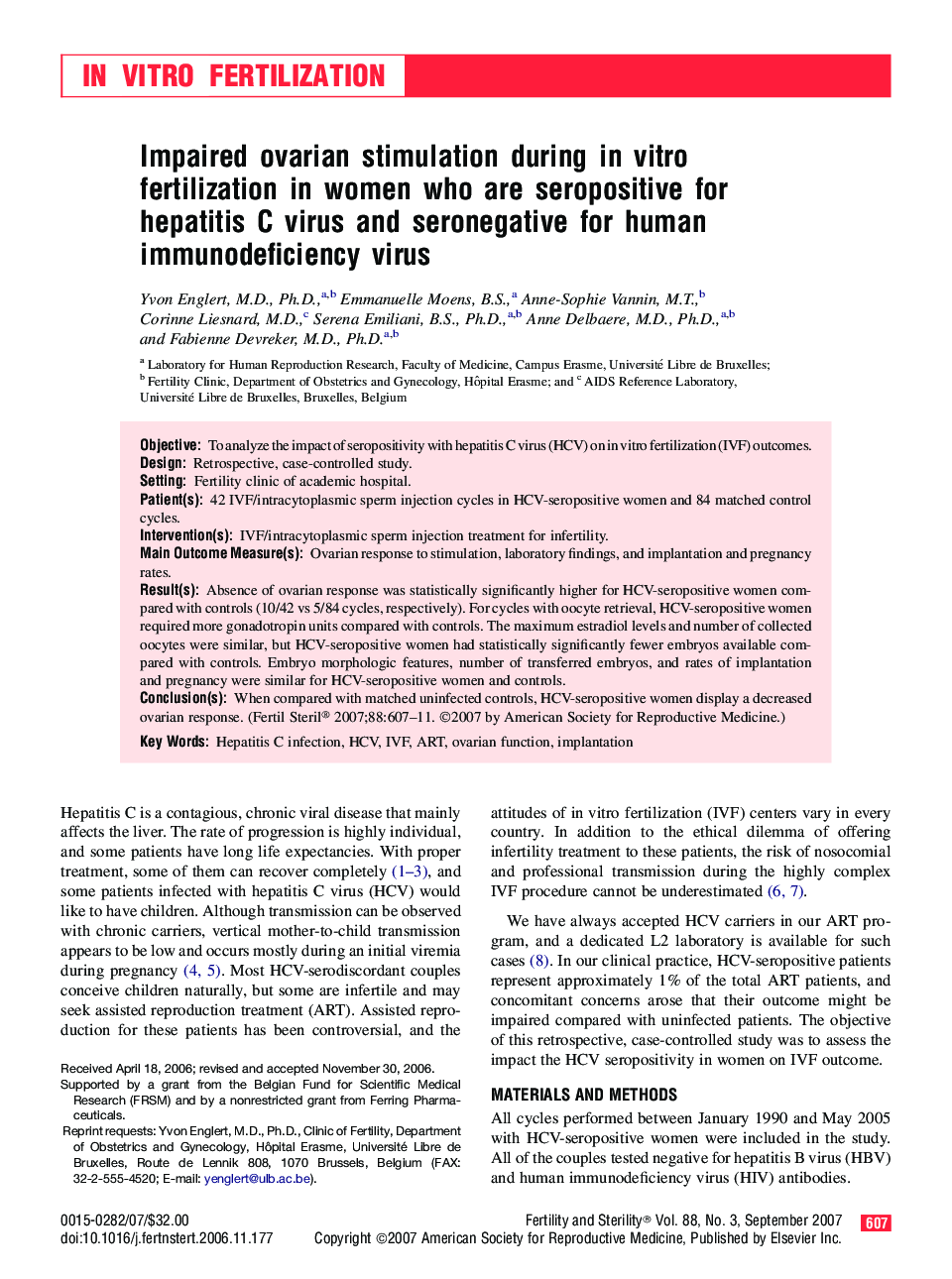| Article ID | Journal | Published Year | Pages | File Type |
|---|---|---|---|---|
| 3939722 | Fertility and Sterility | 2007 | 5 Pages |
ObjectiveTo analyze the impact of seropositivity with hepatitis C virus (HCV) on in vitro fertilization (IVF) outcomes.DesignRetrospective, case-controlled study.SettingFertility clinic of academic hospital.Patient(s)42 IVF/intracytoplasmic sperm injection cycles in HCV-seropositive women and 84 matched control cycles.Intervention(s)IVF/intracytoplasmic sperm injection treatment for infertility.Main Outcome Measure(s)Ovarian response to stimulation, laboratory findings, and implantation and pregnancy rates.Result(s)Absence of ovarian response was statistically significantly higher for HCV-seropositive women compared with controls (10/42 vs 5/84 cycles, respectively). For cycles with oocyte retrieval, HCV-seropositive women required more gonadotropin units compared with controls. The maximum estradiol levels and number of collected oocytes were similar, but HCV-seropositive women had statistically significantly fewer embryos available compared with controls. Embryo morphologic features, number of transferred embryos, and rates of implantation and pregnancy were similar for HCV-seropositive women and controls.Conclusion(s)When compared with matched uninfected controls, HCV-seropositive women display a decreased ovarian response.
